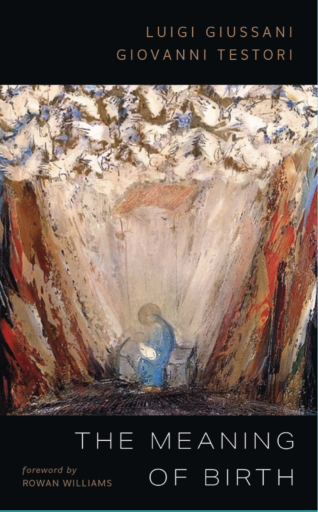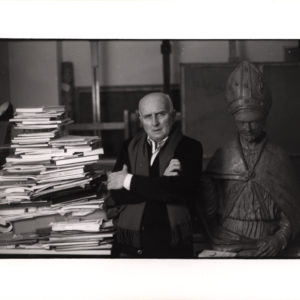Giovanni Testori was an Italian writer, journalist, poet, art and literary critic, playwright, screenwriter, theater director, and painter.
He was born in 1923, in Novate Milanese, a town on the outskirts of Milan. By the end of the 1940s Testori had also developed a passion for the theater. In 1948, his first drama, Catherine of God, was performed, and in 1950, at the Verdi Theater in Padua, The Lombards.
His first novel, The God of Roserio, came out in 1954. In 1958, The Bridge of Ghisolfa, a collection of short stories, appeared and became the basis for the film, Rocco and His Brothers.
In 1965, The Triumphs was published: a monumental poem of almost 12,000 verses. It was the first book of a poetic trilogy dedicated to his life companion, Alain Toubas, followed by Love (1968) and Forever (1970).
In 1972, Rizzoli published L’Ambleto, a re-writing of Shakespeare’s tragedy.
On July 20, 1977, Testori’s mother died; she had always been the most beloved family member in his life. The period of pain and recollection for her loss coincided with his return to the Christian faith.
In the mid-1970s, Testori took over the position previously held by Pier Paolo Pasolini as commentator on the front page of Corriere della Sera. During this period, Testori drew close to the ecclesial movement Communion and Liberation, beginning a friendship with its founder, Father Luigi Giussani.
It was through his relationship with the young people from the movement that Interview with Mary was born. This became a trilogy, with Factum Est (1981) and Post-Hamlet (1983).
Among his last works are Translation of the First Letter to Corinthians by Saint Paul (1991) and Sfaust (1990), sdisOrè (1991), and The Three Laments, a Dantean triptych.
The writer died at San Raffaele on March 16, 1993.


